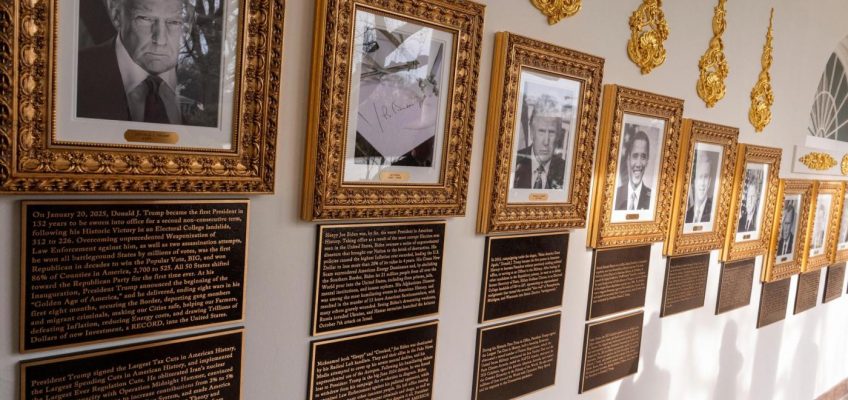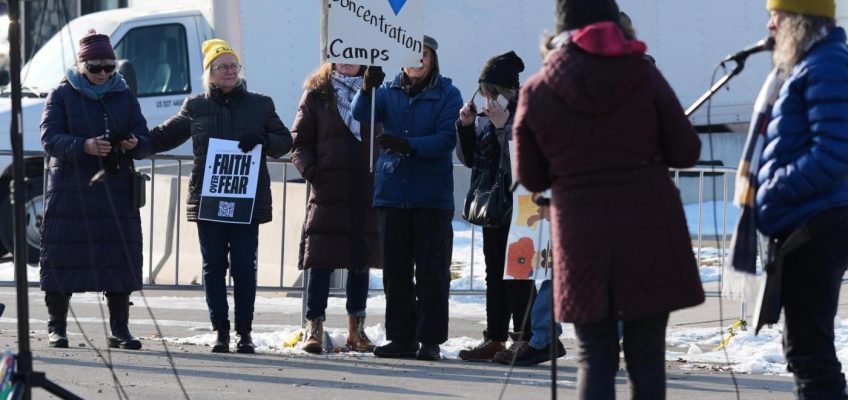Unless you spent your formative years in places in Russia like Novosibirsk, Moscow or St. Petersburg, you’re not going to be able to glean much insider information when Wild rookie center Danila Yurov speaks to his linemates before a faceoff.
For the past few weeks, the 21-year-old has had two fellow Russians on his line, with Vladimir Tarasenko on one wing and either Kirill Kaprizov or Yakov Trenin on the other.
Following the first three-point night of his young career — in the Wild’s 5-0 win over Washington on Tuesday — Yurov admitted that they speak English when talking to the defenders, and use their native language when talking to each other. So, when Yurov was about to take an offensive zone faceoff and directed Tarasenko to stay behind him, to be ready for the puck, unless you speak Russian, you had no idea it was coming.
When the puck hit the ice, Yurov swatted it back to Tarasenko, who fired a shot immediately, sailing over the goal line for a 3-0 Wild lead. Capitals goalie Charlie Lindgren clearly had no idea it was coming either.
“That’s a very unique situation in the NHL, where you can play with two Russian guys on the line, and it’s been fun, you know,” Tarasenko said, after his first two-goal game as a member of the Wild. “We played with Kirill before with all three that can talk in the native language and explain, express ourselves. It’s very nice.”
New in town
Picked by the Wild later in the first round of the 2022 NHL draft, Yurov signed with Minnesota in May after a few years in the Russian Kontinental Hockey League, where he won its championship two seasons ago. In his first training camp in Minnesota this year, Yurov sometimes had Tarasenko serve as his interpreter when talking with the media.
“I can speak English, but if I have Russian guy, I can do think(ing for) me,” Yurov said after the Washington game. “I don’t need think what to do I say. I improve my English, but it’s hard for me my first year. But I learn.”
Now in his third month in the NHL, Yurov’s English is developing almost as quickly as his on-ice importance for the Wild. But it took some time, especially early in the season. The NHL is a much faster and more physical brand of hockey than the KHL, and rather than throw him right into the fire, Wild coach John Hynes had Yurov watching from the pressbox for five games in the season’s first five weeks.
Kaprizov, who made the transition from the KHL to the NHL five years ago, said there are differences to be sure, but the root ability to play the game hasn’t changed for Yurov.
“It was different, some stuff. People play with more skill and play better in battles,” Kaprizov said. “But I just feel like hockey is everywhere. There are different leagues, and the NHL is the best league in the world, sometimes you need a little more time to feel comfortable.”
When injuries at center began to take their toll — with the Wild losing Marco Rossi and Ryan Hartman at various times — Yurov was elevated to center on the top line, which became an all-Russian group when an injury forced Mats Zuccarello to the injured list. Yurov also missed two games due to injury but has seemed like a different player since his return, looking more comfortable with the speed and intensity of NHL hockey, and with his Russian-speaking linemates to be sure.
The time he took to find his pace and his place was to be expected.
“I feel like you need some time when you come to the league to adjust,” Tarasenko said. “Everybody tried to help him, he is helping himself, and I feel like he’s stopped being scared to make a mistake and play confident hockey, play a very solid 200-foot game.”
Putting in the work
Perhaps initially overwhelmed by life in Minnesota and in the NHL, Yurov has made a herculean effort to learn, on and off the ice. And he has been helped, surely due in part to his likability, by teammates who want to see him succeed.
With the three other Russians on the team, he always has had someone to explain things in his own language. But the Swedes and the English speakers have all taken the new guy under their collective wings.
And when Zuccarello was injured by a hard hit in Seattle recently, it made an impression on the Wild that Yurov — who is not at all reputed as a tough guy — was the first red-and-green jersey into the scrum, not afraid to embark on a mission of revenge. Sticking up for your teammates is a vital lesson learned at all levels of hockey, on both sides of the Atlantic.
“I think that either someone has showed him or he’s played somewhere with a good culture,” Wild defenseman Zach Bogosian said. “That’s what happens on good teams with good cultures. That’s what we have here, and obviously he fits that bill. There’s usually a team bonding moment with situations like that. He didn’t think. He reacted off emotion, and that’s what you’re looking for.
After a recent morning skate, Yurov apparently wasn’t done working. He changed into shorts, t-shirt and athletic shoes, went back up to the arena to walk the bleachers, which were now devoid of spectators. He then began running the stairs, side to side, working both ankles again and again.
“It was just for my legs,” Yurov said later. “Its helped me for starting the game because we have late game, 7 o’clock, and for my first couple shifts, my legs, we need to be fresh and quick. It’s helped.”
And that night versus Washington, in his first three-point NHL game, Yurov looked fresh, quick, effective, and like a guy who is finding his place in a hurry.
Briefly
With defenseman Daemon Hunt injured during Tuesday’s home win versus Washington, and three other blueliners on the shelf, the Wild recalled Carson Lambos from their Iowa AHL team before heading to Columbus for Thursday’s meeting with the Blue Jackets. Lambos, 22, was the Wild’s first-round draft pick in 2021. He was recalled by Minnesota last season but has yet to make his NHL debut.
In a corresponding move, the Wild placed veteran Jonas Brodin on injured reserve. He has missed four games this season, including three in a row, with an upper-body injury.
Twins’ new limited partners include Wild owner Craig Leipold
Russian revolution in St. Paul as Wild dominate Capitals
Amid the Quinn Hughes hype, Matt Kiersted makes a quiet Wild debut
Quinn Hughes ‘extremely open-minded’ about a Wild extension
Minnesota Hockey Hall of Fame coming to Inver Grove Heights




